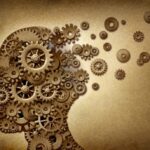There are a lot of lists online about the signs of dementia. Some lay out just a handful of things to look out for. Others list up to 20.
We’re going to share some of the common signs of dementia below. And we also have links at the end of this article to dig in deeper on common questions related to this topic.
Do These Signs Really Indicate Dementia?
But we want to make one thing clear first. Having the signs listed below do NOT mean you have dementia. Or that you are exhibiting the early warning signs of dementia.
Many of the signs below can be caused by other issues. From just the normal effects of aging to more serious medical conditions.
So how do you determine if what you or a loved one is experiencing is related to dementia?
Here are a few things to look for:
- The severity of the behavior/condition
- If it happens occasionally or frequently
- How many of the signs you/your loved one have
Even with these rough guidelines, they are just that… guidelines. The ONLY way to know for sure whether it’s related to dementia is to be diagnosed by a medical expert.
So as you read through the information listed below, do not freak out if you identify with some of these signs. If you have concerns, seek out a doctor’s advice to see if there truly is reason for concern.
Signs of Dementia
Memory Loss
This is obviously the big one. It’s the sign most commonly associated with dementia. It’s important to keep in mind that some memory loss is a normal part of aging. Forgetting names, phone number, appointments, etc. but remembering them later is not uncommon.
It’s when this becomes more frequent or you can’t remember things later that there may be cause for concern. When memory loss disrupts your daily life, it’s time to talk to a professional about it.
Trouble With Daily Tasks
The signs here include difficulty with normal tasks such making coffee, driving/walking to a familiar location, making a grocery list and other familiar activities.
Confusion About Time or Place
If you occasionally are confused about what day it is, but eventually remember, there is probably not much to worry about. It’s when you frequently forget what time/day/season it is that could indicate dementia. Also forgetting where you are is another worrying sign.
Planning/Problem solving Issues
Everyone makes mistakes every now and then paying bills or working with numbers. Having more frequent issues is cause for concern. Those with dementia can have issues following a plan and concentrating. It can also take them longer to complete tasks than it used to.
New Communication Troubles / Not Taking Part in Social Activities
It’s not uncommon to find the right word every now and then. Those with dementia, however, find it increasingly difficult to do so. This can make having or even joining a conversation harder for them. And, if they’re in a conversation, they may find themselves at a loss for words or might repeat themselves.
This can also cause people to withdraw more and more from social activities.
Poor Judgment
We can all be accused of having lapses in judgment every now and then. With dementia, however, this becomes more frequent and severe. This can lead to making bad money decisions as well as not staying well-groomed or keeping themselves clean.
Mood Changes
Dementia can also cause changes to mood and personality. This is due to the person dealing with feelings of depression, confusion, suspicion, fear and/or anxiety.
Other Signs of Dementia
There are other signs of dementia besides the above. This was just meant as an overview. We have written other articles that dive into this topic deeper.
So if you’re interested in learning more about the signs of dementia, please check out the articles below on specific signs of dementia related topics.
This article provides a handy checklist that outlines the main signs of dementia.
Here we go in depth into the 10 warning signs of dementia.
If someone has dementia, it’s common to want to understand the signs of end stage dementia. We explore those here.
It’s a common belief that those with dementia show increasing anger. We look at whether that’s true or not in this article.




